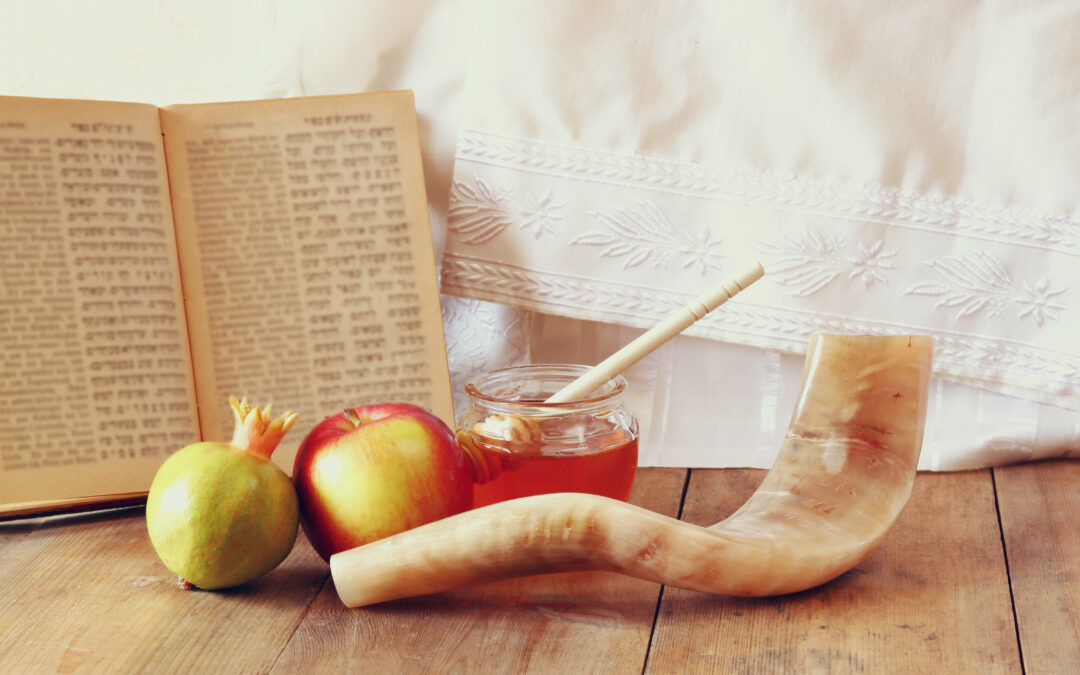Commemorating the Jewish New Year | Honoring the Jewish Day of Atonement
Two of the major Jewish holidays—Rosh Hashanah and Yom Kippur-are within the next two weeks. Rosh Hashanah, the celebration of the Jewish New Year, will be Saturday and Sunday, September 19 and 20 this year. Yom Kippur, the Day of Atonement, takes place just over a week later, on Monday, September 28. In this blog, we’ll take a look at these two important Jewish holidays—what they represent, as well as the customs that are practiced on those days.
What Is Rosh Hashanah?
Rosh Hashanah, from the Hebrew term for “head of the year,” is the commemoration of the Jewish New Year, the traditional anniversary of the creation of Adam and Eve, as well as God’s presence in the world. In ancient times, the date for Rosh Hashanah was based on the observation of the new moon. When the Hebrew calendar was fixed (sometime during the 3rdcentury CE), the beginning of Rosh Hashanah was set so that it never falls on Sunday, Wednesday or Friday.
Rosh Hashanah is not mentioned in the Torah, but is referred to in the Mishnah (a written collection of Jewish oral traditions), which refers to the holiday as a “day of judgment.” According to the Talmud, three books of account are opened on Rosh Hashanah, which will determine the fate of the righteous, the wicked and those of “intermediate class.” The righteous have their names inscribed in the “book of life,” assuring that they will be among those who live in Heaven. The wicked are permanently banned from the “world to come,” but those in the intermediate class are afforded 10 days to reflect on their lives, repent of their sins and become righteous. Those ten days end with Yom Kippur, the day of atonement.
What Are the Rosh Hashanah Traditions?
Contrary to modern secular New Year’s Eve, Rosh Hashanah is a time of quiet, contemplative reflection. Active adherents of the Jewish faith customarily spend most of the holiday in synagogue (work is forbidden). The Jewish High Holy Day prayer services have specific songs and texts, with rabbis and congregations using a special prayer book called the machzor.
It’s also traditional to sound the shofar during both Rosh Hashanah and Yom Kippur. The shofar, a trumpet made from a ram’s horn, reminds Jewish people of their call to repent, as well as their belief that God is their king.
When the services in synagogue are done, there’s usually a festive meal, which starts with the lighting of two candles. Tables are set with finest linens and place settings, and foods are put out that symbolize the new beginning. That typically includes apple slices dipped in honey, as well as round loaves of bread called challah (as opposed to the traditional braided challah). The challah may contain raisins, a symbol of a “sweet new year.”
What Is Yom Kippur?
Yom Kippur is the holiest day on the Jewish calendar, culminating with the end of the 10 day period of reflection and repentance called for during Rosh Hashanah. It’s a 25 hour period, mostly spent in fasting and prayer in synagogue. Unlike other days on the Jewish calendar, Yom Kippur has five different prayer services, which include both private and public confessions of sins. Because it’s the highest of the Jewish holy days, it’s typically observed by secular, as well as practicing, members of the Jewish faith.
Yom Kippur actually starts the day before, on Erev Yom Kippur (the eve of the day of atonement), when it’s customary to have additional morning prayers, an afternoon prayer service and festive meals. Those observing the holiday are encouraged to engage in acts of forgiveness and/or charity, and may perform a “kapparot” ritual, where a chicken is passed over a person’s head and then slaughtered. Money may used instead.
The Torah expressly states that Yom Kippur shall be a day of rest. In addition, those observing Yom Kippur are banned from:
- eating or drinking
- wearing leather shoes
- bathing or washing
- anointing themselves with perfume or lotion
- having marital relations
The prohibitions set forth above begin at sundown on the eve of Yom Kippur and continues until nightfall the following day.
Let Gutterman’s Assist You in Your Time of Loss
At Gutterman’s, we have provided comprehensive funeral and burial services for members of the Jewish faith for more than 125 years, with chapels in New York and Florida. We have a thorough knowledge and understanding of Jewish traditions, and offer compassionate counsel when you are grieving. We understand that these are not ordinary times, and that you may have concerns about how you can safely pay your final respects during the COVID-19 pandemic. We know how important the grieving process is and will work individually with you to determine the best ways to honor the memory of your loved one, maintain Jewish customs and keep you, your loved ones and our staff safe. We adhere to all recommended state and federal public health guidelines related to the Coronavirus. To see our current safety policies, visit our website.
For answers to any questions about our services or to learn the many ways we can be of assistance after the death of a loved one, call us at one of the numbers below. We are currently available to consult with you by phone, text message or videoconferencing. Our phones are answered 24 hours a day, 7 days a week.

